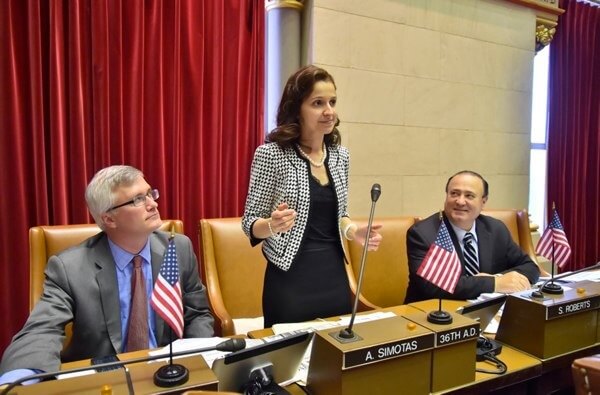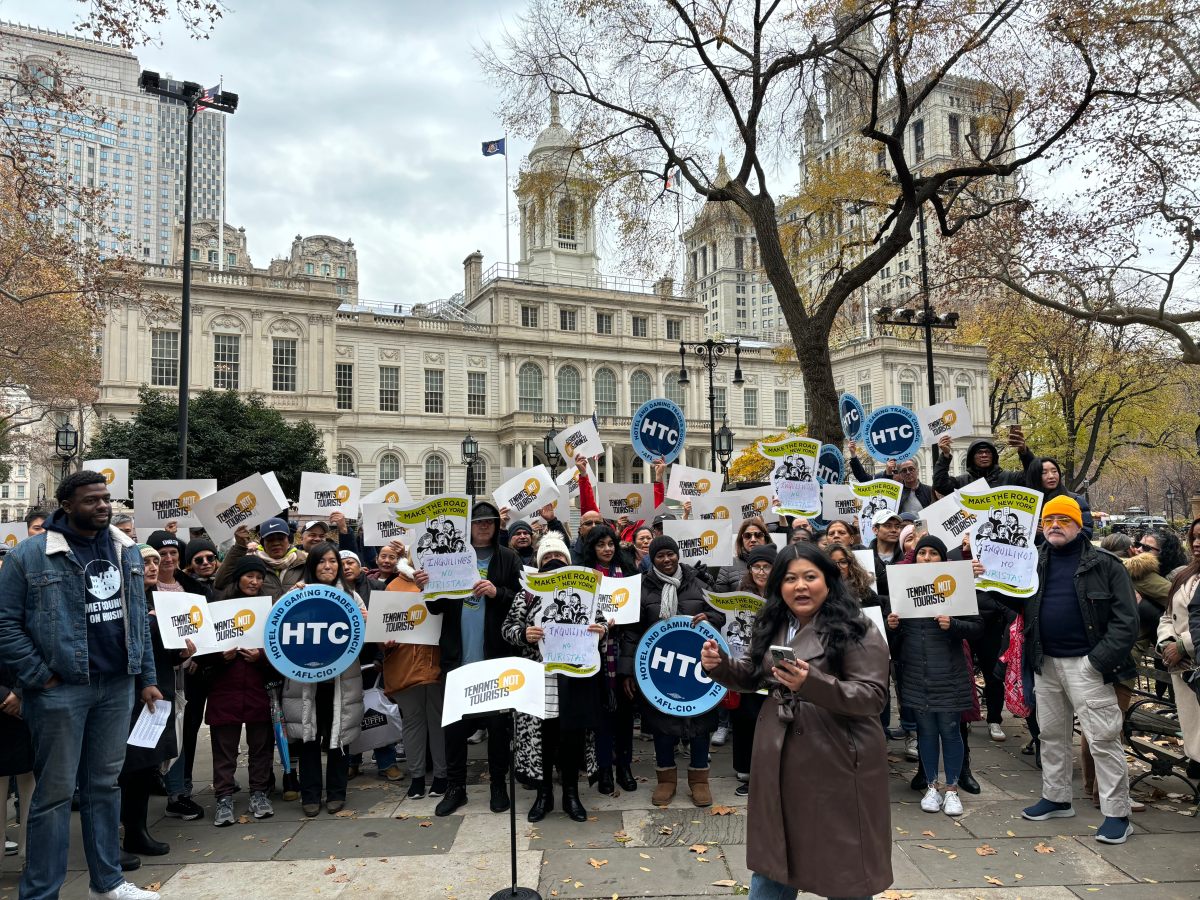By Bill Parry
The timely processing of rape kits will now be mandated in New York state after Gov. Andrew Cuomo signed legislation into law Monday. The bill, sponsored by Assemblywoman Aravella Simotas (D-Astoria) after she received reports of hundreds of untested rape kits in jurisdictions throughout the state, passed unanimously in the state Assembly and Senate in June.
“I thank Gov. Andrew Cuomo for signing this important law to mandate the speedy processing of rape kits,” Simotas said. “When rape kits are backlogged, it’s like a disease infecting the criminal justice system. But now this new law will be the vaccine that prevents a future plague of unprocessed rape kits.”
Under the new law, a rape kit must be sent to a lab for DNA testing within 10 days from when a law enforcement agency received it, and testing must be completed and the results must be reported back within 90 days. The law also mandates that all unprocessed rape kits must be inventoried and tested.
“New York state needs this law to bring justice on behalf of rape survivors, to ensure prosecution and punishment for the guilty, and exoneration for the innocent,” Simotas said. Her legislation was one of 62 bills that were approved by Cuomo Monday.
A bill sponsored by state Sen. Joseph Addabbo (D-Howard Beach) that will increase protections for Jamaica Bay and a measure by Assemblyman Michael DenDekker (D-East Elmhurst) which allows New York state to better enforce the existing window tinting regulations in cars were also signed into law.
But Cuomo also killed 72 other bills for a variety of reason, including costs, unintended consequences and violating the state Constitution.
Assemblyman Francisco Moya (D-Jackson Heights) criticized Cuomo’s veto of his Farm-to-Food bill, legislation that would have removed some of the barriers farmers face donating food.
New York farmers donated 12 million pounds to food banks in 2015, but the costs of labor and transportation restrict them from doing more. Moya’s bill would have offset some of the associated costs, allowing farmers to donate more food and not let it go to waste. A tax credit of 25 percent of the wholesale cost of the donations, up to $5,000 per year for each farmer, would have been recouped under the legislation that was passed unanimously.
“Just in time for the holidays, the season when we should be thinking of giving and the well-being of others, Gov. Cuomo has vetoed a bill that would help feed those in need,” Moya said. “The Farm-to-Food bill was an opportunity to help our farmers fill our pantries and food banks so no family that has fallen on hard times is forced to make hard choices when putting food on the table. Feeding the hungry shouldn’t just be something we do a couple of times a year for the holidays, it should be a continued effort.”
Cuomo wrote in his veto message that the bill suffers from the same flaws it did in 2015 when he also declined to approve it, contending that the credit would duplicate existing tax benefits for charitable food donations and “it is nearly impossible to establish an accurate value for donated food.” He wrote that it is extremely difficult to establish such a price when the age, quality and quantity of donated food varies wildly.
Moya vowed to reintroduce the bill in the next legislative session.
“Hopefully, next year we can finally do right by New York’s hungry,” he said.
Reach reporter Bill Parry by e-mail at bparr





































